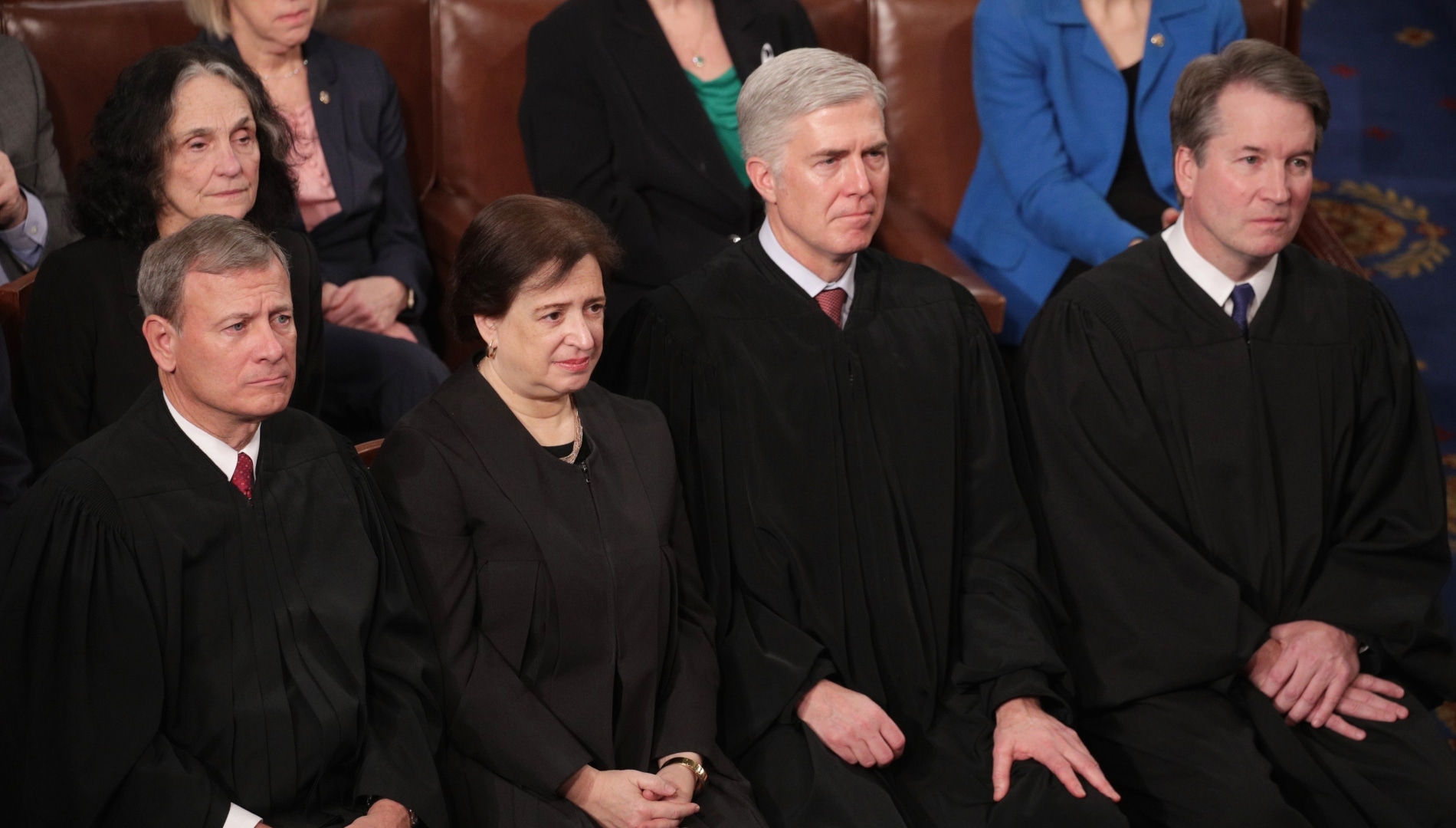OPINION: This article may contain commentary which reflects the author's opinion.
The U.S. Supreme Court is wading back into the culture wars.
On Monday, justices will hear oral arguments in a pair of lawsuits involving race-based admission standards at Harvard University and the University of North Carolina, with plaintiffs arguing they are blatantly unconstitutional despite a prior Supreme Court ruling, the American Digest reported.
A majority of all Americans, regardless of ethnicity, say race-based college admissions are wrong, attorney Beverly A Pekala noted on Twitter, citing a Pew Research survey.
“In polling by Pew Research, 75% of Americans, incl. majorities of every racial group, say race/ethnicity should not be factors in admissions,” she wrote on Twitter.
SCOTUS hears arguments next Monday in Harvard, UNC cases on race-based affirmative action admissions.
In polling by Pew Research, 75% of Americans, incl. majorities of every racial group, say race/ethnicity should not be factors in admissions. #Thursday https://t.co/BjY2QUcQfv pic.twitter.com/i1snP3bRSU— Beverly A. Pekala (@PekalaLaw) October 27, 2022
“Affirmative action will be thrust into the spotlight next week as the Supreme Court prepares to hear two cases: Students for Fair Admissions v. Harvard and Students for Fair Admissions v. the University of North Carolina,” The Hill reported.
“A ruling on the two cases by the conservative court could reverse 40 years of precedent of race-conscious admissions to colleges and universities,” the outlet continued.
Several legal and constitutional experts have said they believe using race in any capacity to decide who gets accepted to a college or university, no matter the intent, is illegal.
“It’s very clear to me that Harvard University was engaging in blatant discrimination. And what they were doing was they did not like the fact that Asian-Americans – if they were simply admitted based on their credentials, qualifications – would have such a huge percentage of the student body,” Hans von Spakovsky, a senior legal fellow at the Heritage Foundation, told Fox News.
“Harvard and the University of North Carolina have racially gerrymandered their freshman classes in order to achieve prescribed racial quotas,” he added.
"Every college applicant should be judged as a unique individual, not as some representative of a racial or ethnic group," SFFA Pres Edward Blum.
Supreme Court to hear case that could end 40 years of race-based affirmative action in university admissionshttps://t.co/ARe7vzKcvp
— Geary Higgins (@GearyHiggins) August 11, 2022
SCOTUS Blog explains:
In 2003, the Supreme Court ruled in Grutter v. Bollinger that universities may consider race in their admissions processes as part of their efforts to achieve diversity on campus. On Oct. 31, the justices will hear oral arguments in a pair of cases asking them to overturn Grutter and outlaw race-based affirmative action in higher education altogether.
The challengers urge the justices to rule that the Constitution and federal civil rights laws bar any consideration of race in college admissions. But the universities at the center of the dispute, as well as their supporters, counter that overruling Grutter would have sweeping effects well beyond university admissions, affecting everything from the performance of U.S. businesses to the practice of medicine in an increasingly diverse society.
Both of the lawsuits were filed in federal court in 2014 by a group called Students for Fair Admissions, which describes itself as “dedicated to defending the right to racial equality in college admissions.” The group was created that same year by Edward Blum, a stockbroker and conservative activist who, though not a lawyer, has backed other prominent lawsuits challenging the consideration of race in undergraduate admissions as well as a challenge to the constitutionality of the Voting Rights Act. SFFA says it has more than 20,000 members.
“In its lawsuit against Harvard, SFFA alleged that the university discriminates against Asian American applicants, arguing that they are less likely to be admitted than similarly qualified white, Black, or Hispanic applicants. Harvard receives over 35,000 applications for 1,600 spaces in its freshman class,” the blog further noted.
Previously, lower federal courts have upheld the admissions standards, claiming that they were not violations of Title VI of the Civil Rights Act, which bars any institutions receiving federal funding from discriminating on the basis of race.
“SFFA came to the Supreme Court in February 2021, asking the justices to review the 1st Circuit’s ruling,” SCOTUS Blog continued after previous rulings sided with Harvard and UNC. The group again approached the Supreme Court in November, asking justices to review the North Carolina ruling as well, and the court agreed.
“SFFA stresses that both Harvard and North Carolina take race into account at ‘every stage of the admissions process.’ But the Constitution, the group argues, is color-blind, and the court’s decision in Brown v. Board of Education, the landmark 1954 ruling striking down racial segregation in public schools, made clear that race should not play any role in school admissions,” SCOTUS Blog continued.
“And although the 14th Amendment does not apply to private universities like Harvard, the Supreme Court has ruled that the legal test under Title VI coincides with the test under the 14th Amendment – that is, Title VI prohibits racial classifications that would violate the 14th Amendment, which guarantees citizens ‘equal protection of the laws,’ if applied by the government,” the site added.
